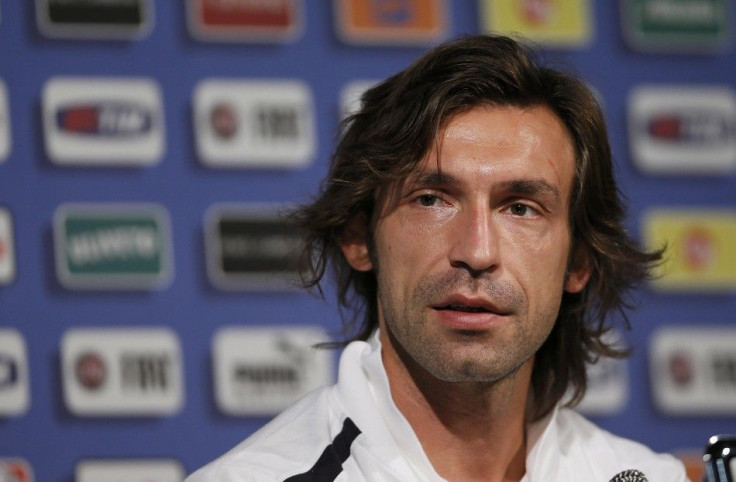Spain Vs. Italy: Euro 2012 Final Prediction, Preview: Will The Azzurri?s Dramatic Journey Have A Happy Ending?

Even for a history as storied as that of Italian football, the last month just might prove to be the most remarkable of all. On June 1, amid a dramatically unraveling match-fixing scandal, coach Cesare Prandelli revealed that he was prepared to withdraw his side from Euro 2012. On July 1, the quietly assured man from Orzinuovi, Brescia, will lead out his country in the final.
Just four days prior to Prandelli's calmly uttered, yet powerful words, the squad's training camp in Tuscany had been hit with a dawn raid by Police that led to first-choice left back Domenico Criscito's enforced absence from the side that left for Poland and Ukraine.
The following day, Italy's warm-up game with Luxembourg, in Parma, was cancelled after a second deadly earthquake struck the region in the space of a week. Italy would subsequently lose their only pre-tournament friendly 3-0 to Russia. It was their third successive defeat and it was beginning to look as though it might be better for the pride of the nation if the squad remained at home.
But travel they did. It was just over a week later that Italy stepped out onto the pitch in Gdansk against the world and European champions, Spain, with much trepidation from their supporters. Such uncertainty was only increased with Prandelli deploying a largely untested 3-5-2 formation and selecting a striking partnership featuring mad Mario Balotelli and the formally mad Antonio Cassano.
What transpired was something to behold as Italy matched Spain in a way few teams have since their ascent to dominance began with, ironically, a victory over Italy in the quarterfinals of Euro 2008. In contrast to the vast majority of teams who have come up against the tiki-taka onslaught, Italy did far more than merely contain--they took the game to the Spanish. By the end of the 90 minutes, Italy were good value for a 1-1 draw.
After some uncomfortable moments against Croatia and Ireland, Italy dominated England in the quarterfinals without having the cutting edge to put them away until a penalty shootout. Then facing Germany in the last four, Italy produced their most complete performance of the tournament; combining the defensive resilience of Italian teams past with a fluid midfield and clinical finishing from Balotelli.
Throughout their time in Eastern Europe Prandelli has excelled. After Italy were overrun in midfield during the second half of their clash with Croatia, he dispensed with three at the back for a more conventional four playing behind a rotating diamond. The move, with Riccardo Montolivo coming in at the head of the diamond following the defeat of Ireland, has worked to spectacular effect. The narrow quartet has allowed Italy to dominate the center of the field and crucially provide time on the ball for their star man Andrea Pirlo.
Such was the fear of Italy's central four that Germany coach Joachim Low switched up the makeup of his own midfield. It failed miserably as Germany were neither able to exploit the space allowed down the flanks or nullify the threat of Pirlo.
That is the challenge awaiting Spain on Sunday. Pirlo was exceptional against them in their earlier contest and in the final should have the extra protection of Daniele De Rossi moved forward into a midfield role, where he has been a dynamic presence.
On paper, Spain should be well-equipped to deal with this conundrum. Cesc Fabregas' deployment as a false nine could make him an ideal candidate to come deep and sit on Pirlo. Yet by selecting the Barcelona midfielder, Spain would lose the pace in-behind that Fernando Torres would provide. As he showed in Gdansk, with Italy playing so positively, the space will surely be there to exploit.
Spain must also try to effectively utilize the openings that will likely be on offer out wide. Vicente Del Bosque has thus far failed to start with either Jesus Navas or Pedro, despite both men always having a positive influence on each game in which they have appeared off the bench.
Now would be the perfect time. The two are the only members of Del Bosque's squad to offer width, direct running with the ball and the ability to break in-behind. Given Pedro's experience of performing with assurance in both World Cup and Champions League finals, he would perhaps be the more likely to get the nod.
Spain will also be relying on support out wide from their fullbacks. On the left Jordi Alba has looked increasingly comfortable and dangerous on the ball as the tournament has progressed, though on the other side Alvaro Arbeloa does not carry the same threat on the attacking end. With both players essentially having no direct opponent in the final they will be expected to go forward at will. A factor that Italy will look to make the most of with the movement of Cassano and Balotelli.
Cassano caused Italy ample problems in their group-stage encounter, finding gaps behind the full-backs and being supplied with typically pin-point passes from deep by Pirlo. Combine that with Balotelli's relentless work rate, pressuring Ramos and Gerard Pique--in the same way as Portugal did to such disruptive effect on the Spanish passing game--and it is clear that Italy has more than a fighting chance in this match.
With this Italy side, as monstrous tackles from De Rossi and the desperate blocks of their defenders showed against Germany, it is more than just technique and tactics that explain their success. As they were during their World Cup win in 2006, Italy are fighting for the pride of their illustrious footballing nation.
Spain 1-2 Italy
© Copyright IBTimes 2025. All rights reserved.





















